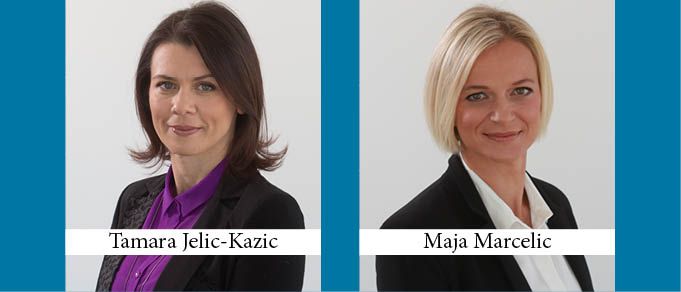International taxation is rapidly changing and aligning with recommendations of the Project for the Prevention of Base Erosion and Profit Shifting (BEPS).
BEPS, which identified 15 actions aimed at preventing aggressive tax planning, tax fraud, and tax evasion, is the answer to tax evasion strategies that exploit gaps and mismatches in taxation rules in order to shift profits to jurisdictions with low or no tax burden. The BEPS Action Plan was originally developed by the OECD Committee and endorsed by the G20 countries. Croatia joined in later and became a member of the Inclusive Framework on BEPS in 2016.
Action 15 refers to the development of a multilateral instrument that would intervene in more than 1,200 tax treaties worldwide. So far, more than 80 countries have concluded negotiations and signed the Multilateral Convention to Implement Tax Treaty Related Measures to Prevent Base Erosion and Profit Shifting (the “Multilateral Instrument” or MLI).
MLI is a precedent in the field of international taxation, as it enables interested countries to update their tax treaties by applying one international agreement based on international standards.
The Croatian government brought a decision to initiate the procedure for concluding the Multilateral Convention to Implement Tax Treaty Related Measures to Prevent Base Erosion and Profit Shifting in June 2017.
The MLI’s Objective
The MLI’s objective is to simplify and speed up the implementation of BEPS measures in tax treaties. The MLI includes, inter alia, provisions on “pass-through” entities (i.e., “fiscally transparent entities”), dual resident entities, dividend transfer transactions, capital gains from the alienation of shares in real estate companies, artificial avoidance of permanent establishment status through commissionaire arrangements, and similar strategies or specific exempt activities, division of contracts, related persons, etc.
Croatia has signed, but has not yet ratified the MLI. At the signing on 7 June 2017, Croatia indicated all bilateral tax treaties and presented the status of list of reservations and notifications. Currently, Croatia will apply the MLI to 41 out of 62 tax treaties.
Entry into Effect
For withholding taxes, Croatia will apply the MLI from the first day of the calendar year which follows the year in which the MLI enters into force in the country that ratifies the MLI later.
For other taxes, Croatia has chosen that the MLI will become effective for taxes levied with respect to taxable periods beginning on or after 1 January of the next year beginning on or after the expiration of a period of six calendar months from the date when MLI enters into force in the country that ratifies the MLI later.
How?
The OECD has published a tool and databases to facilitate the analysis of the MLI. It is expected that the tool will be expanded and refined over the next couple of years.
Although the MLI is imagined as a simple and fast intervention in tax treaties, its application will be complex, and taxpayers will have to perform several tests in order to assess whether and to what extent the MLI affects a specific tax treaty. First, it needs to be verified whether the MLI has entered into force in both countries that are parties to a particular tax treaty. It also needs to be verified if both countries have covered the specific tax treaty. If the answer to both is yes, then it needs to be determined which notifications and reservations apply to it and when the MLI will have an effect. Navigation through databases will be a must until the consolidated versions of treaties are prepared. Note that for most countries there is no legal requirement to prepare such consolidated versions, so using the OECD tool and databases alongside treaties may be permanent.
Let’s see how the MLI application affects Croatian tax treaties through an example. A French and an Austrian company are expanding their businesses to Croatia and have the same business plan. They both sign their own agent contract, according to which the agent finds buyers and negotiates the terms, but does not enter into contracts on behalf of the French or the Austrian company. All contracts are signed by representatives of the French and the Austrian companies, although these representatives do not materially change the buyer contracts.
France and Croatia agree that the MLI’s provisions will replace the existing provisions in the tax treaty, while Austria and Croatia agree not to change the existing provisions. Due to this difference, the agent of the French company will create a PE of the French company in Croatia, while the agent of the Austrian company will not create a PE of the Austrian company in Croatia.
As a result, Croatia will have the right to tax only the profits made by the French company in Croatia.
By Tamara Jelic-Kazic, Partner, and Maja Marcelic, Consultant, CMS Zagreb
This Article was originally published in Issue 5.12 of the CEE Legal Matters Magazine. If you would like to receive a hard copy of the magazine, you can subscribe here.


